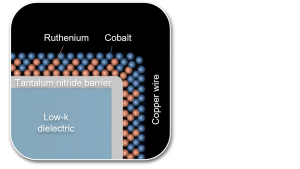
EDACafe Editorial Roberto Frazzoli
Roberto Frazzoli is a contributing editor to EDACafe. His interests as a technology journalist focus on the semiconductor ecosystem in all its aspects. Roberto started covering electronics in 1987. His weekly contribution to EDACafe started in early 2019. TSMC’s $1 trillion valuation; chip wiring below 2nm; Accenture’s acquisitionsJuly 11th, 2024 by Roberto Frazzoli
TSMC is now Asia’s most valuable company. Reportedly, the Taiwanese foundry has reached a trillion dollar market value. Other interesting news this week include Accenture becoming a chip design powerhouse with the addition of approximately one thousand engineers to its centers in India. But first, some EDA updates. Siemens’ new test and analysis solution Siemens has introduced Tessent Hi-Res Chain software, a new circuit test and analysis solution for ICs at 5-nanometers and below. As IC designs progress to more advanced nodes, they become increasingly susceptible to manufacturing variations that can create defects and slow yield ramp. At these geometries, traditional failure analysis (FA) methods can require weeks or months of laboratory effort to investigate. According to Siemens, the new Tessent Hi-Res Chain tool addresses this problem by rapidly providing transistor-level isolation for scan chain defects. By correlating design information and failure data from manufacturing tests with patterns from Tessent automatic test pattern generation (ATPG), Tessent Hi-Res Chain transforms failing test cycles into actionable insights. The solution employs layout-aware and cell-aware technology to pinpoint a defect’s most probable failure mechanism, logic location, and physical location. According to Siemens, for advanced process nodes where yield ramp heavily relies on chain diagnosis, the new software can boost diagnosis resolution by more than 1.5x, reducing the need for costly extensive failure analysis cycles. Altair’s HyperWorks 2024 Altair has unveiled the 2024 release of its HyperWorks platform for design and simulation. According to the company, the latest release delivers significant advancements in AI-powered engineering and business, mechanical and electronics systems design, and simulation-driven design and optimization.
New chip wiring materials from Applied Applied Materials has developed materials engineering innovations designed to enable copper wiring to scale to the 2-nanometer logic node and beyond. Innovations include an enhanced version of Applied’s Black Diamond material, used to surround copper wires with a low-dielectric-constant film engineered to reduce the buildup of electrical charges that increase power consumption and cause interference between electrical signals. The new Black Diamond reduces the minimum k-value, while offering increased mechanical strength which is becoming critical for 3D logic and memory stacking. Applied Materials has also introduced improvements to scale the copper migration barrier and the liner that ensures adhesion of the copper deposition. The solution is based on a binary metal combination of ruthenium and cobalt (RuCo), which simultaneously reduces the thickness of the liner by 33 percent, produces better surface properties for void-free copper reflow, and reduces electrical line resistance by up to 25 percent. Meta’s new text-to-3D generator Meta (Facebook) has unveiled Meta 3D Gen, a new state-of-the-art, fast pipeline for text-to-3D asset generation. 3DGen offers 3D asset creation with high prompt fidelity and high-quality 3D shapes and textures in under a minute. It supports physically-based rendering (PBR), necessary for 3D asset relighting in real-world applications. Additionally, 3DGen supports generative retexturing of previously generated (or artist-created) 3D shapes using additional textual inputs provided by the user. According to the company, Meta 3DGen outperforms numerous industry baselines in terms of prompt fidelity and visual quality for complex textual prompts, while being significantly faster. High audio efficiency even at 10 milliwatt Canada-based SiliconIntervention has developed a highly efficient audio amplifier family as part of its IP portfolio. The amplifiers are based on the company’s “fractal architecture”. According to SiliconIntervention, while efficiencies of 80 to 90% at 1 watt output levels are achievable with standard H Bridge Class-D amplifiers, the result is typically only 30 to 40% efficiency at 10-milliwatt output levels. The Fractal-DTM architecture solves this problem and shows greatly improved efficiency at 10-milliwatt while maintaining 90% efficiency at 1 watt. This translates to a significant increase in battery life in wearable audio products such as earbuds and earphones, the company maintains. Acquisitions Global professional services company Accenture has recently acquired two chip design companies: Excelmax and Cientra. Excelmax Technologies, a Bangalore, India-based semiconductor design services provider, adds approximately 450 professionals to Accenture in key areas such as emulation, automotive, physical design, analog, logic design and verification. Cientra is a silicon design and engineering services company founded in 2015, headquartered in New Jersey, U.S., with offices in Frankfurt, Germany as well as in Bangalore, Hyderabad and New Delhi, India. The company brings consulting expertise in embedded IoT and application-specific integrated circuit design and verification capabilities. The company brings approximately 530 experienced engineers and practitioners to Accenture’s Advanced Technology Centers in India. These two acquisitions follow the addition of XtremeEDA, an Ottawa, Canada-based silicon design services company, in 2022. AMD has signed a definitive agreement to acquire Silo AI, the largest private AI lab in Europe, in an all-cash transaction valued at approximately $665 million. Based in Helsinki, Finland, Silo AI has operations in Europe and North America. Customers of the Finnish AI company include Nokia, Allianz, Philips, Rolls-Royce and Unilever. Silo AI also creates state-of-the-art open source multilingual LLMs, such as Poro and Viking, on AMD platforms in addition to its SiloGen model platform. Silo AI marks the latest in a series of acquisitions and corporate investments to support the AMD AI strategy. AMD has invested over $125 million across a dozen AI companies in the last twelve months, including Mipsology and Nod.ai. Further reading: German firms resisting pressure to take sides in ‘chip war’ King’s College London and University of Sussex researchers found links between German car makers like Mercedes-Benz, BMW and Volkswagen, and the country’s semiconductor firms. With automotive companies now dependent on Chinese markets and suppliers, the researchers say this explains why Germany is defying US calls to cut China out of semiconductor supply chains in an ongoing global trade dispute known as the ‘chip war’. The study zooms in on three German companies that are part of the semiconductor ecosystem: Siemens, Merck, and SÜSS MicroTec. According to the researchers, these three firms “though similarly techno‐dependent on the US, have sought to circumvent the US chip embargo to continue to sell to China,” due to their “secondary exposure” to the Chinese car market. |
|
|
|||||
|
|
|||||
|
|||||








